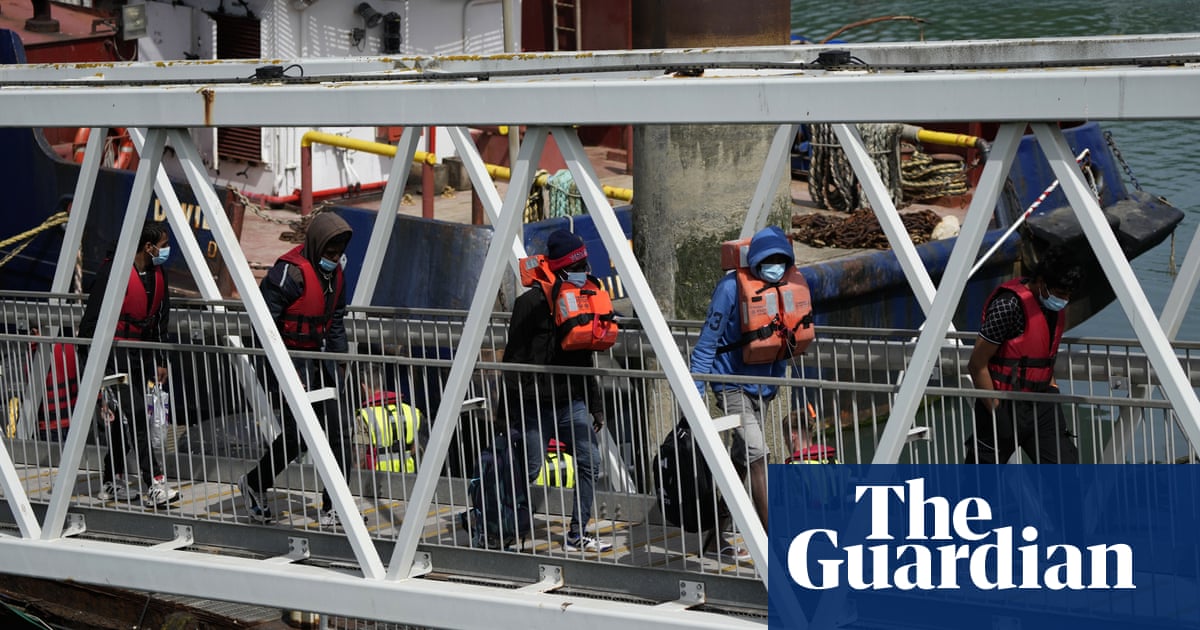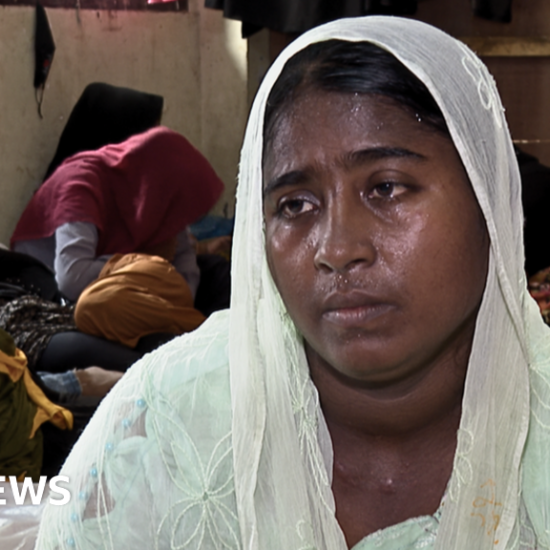
Some people arriving in the UK in small boats or the back of lorries will be electronically tagged under a 12-month pilot scheme run by the Home Office.
The 12-month pilot, which began on Wednesday, has been launched to test whether electronic monitoring is an effective way to give immigration bail to those who arrive in the country using “unnecessary and dangerous” routes.
The BBC reported the first to be tagged under the bail programme were likely to be those who had avoided being removed to Rwanda.
Enver Solomon, the chief executive of the Refugee Council, said: “It’s appalling that this government is intent on treating men, women and children who have fled war, bloodshed and persecution as criminals.
“This draconian and punitive approach not only shows no compassion for very vulnerable people; it will also do nothing to deter those who are desperately seeking safety in the UK.”
The European court of guman rights (ECHR) on Tuesday granted an injunction that resulted in a chartered aircraft to Kigali being unable to depart Wiltshire.
The home secretary, Priti Patel, accused the ECHR of being politically motivated in its “absolutely scandalous” decision.
In an interview with the Telegraph she said: “You’ve got to look at the motivation. How and why did they make that decision? Was it politically motivated? I’m of the view that it is, absolutely.
“The opaque way this court has operated is absolutely scandalous. That needs to be questioned.
“We don’t know who the judges are, we don’t know who the panel are, we haven’t actually had a judgment – just a press release and a letter saying we can’t move this person under rule 39.
“They’ve not used this ruling previously, which does make you question the motivation and the lack of transparency.”
The justice secretary, Dominic Raab, has suggested new laws could ensure that interim measures from the Strasbourg court could in effect be ignored by the government.
The Home Office said the trial would test whether tagging would aid regular contact with those given bail and progress their claims more effectively.
Those tagged will have to regularly report in person to authorities, may be subject to a curfew or excluded from certain locations, and failure to comply could result in them being returned to detention or prosecuted.
New figures revealed the number of people crossing the Channel to reach Britain this year has passed 11,000.
Sign up to First Edition, our free daily newsletter – every weekday morning at 7am BST
On Thursday, 146 people on four small boats were brought to Britain.
The daily number has been decreasing steadily throughout the week after a high of 444 on Tuesday. That was the highest number since 562 on 14 April.
At least 48 people were brought ashore at Dover on Thursday.













